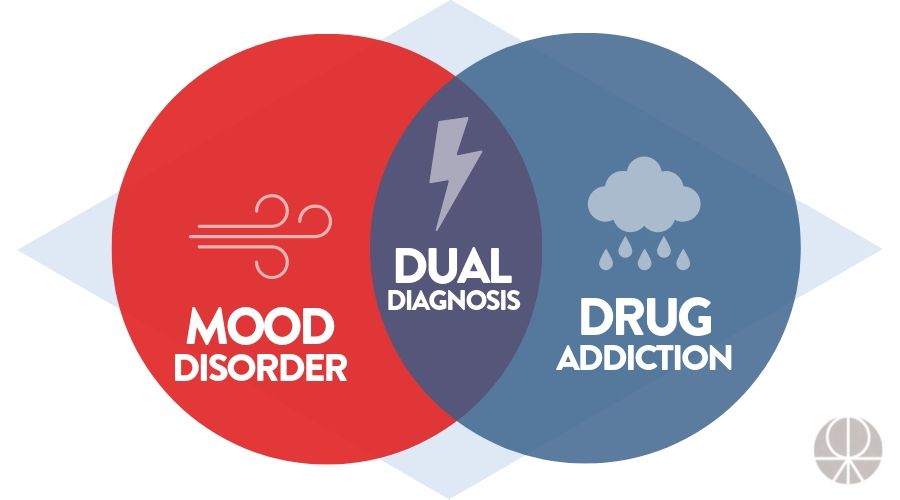Dual Diagnosis vs Multidimensionality

Some time ago, I had the opportunity to work in the Skid Row area of downtown Los Angeles. In those days (the early ’90s) the residents of the area were divided between need “mental health services” or those needing “addiction services.” This distinction was usually the result of some odd government funding rules or just the general ignorance of the time. It must have been extremely frustrating for clients to walk back and forth between programs as both programs had strict entrance criteria. Invariably, the client would give up and end up using and just sleeping on the streets.
The Dual Diagnosis revolution came about as both traditional mental health, and substance abuse programs began to realize that clients didn’t fit into these neat boxes. In my mind, this was obvious. Any Introduction to Psychology course will instruct you on understanding the complexity of human behavior. More often than not, people need help in a variety of areas.
Mental health disorders and substance abuse issues are only a small part of the recovery plan Click To Tweet
Services such as financial and legal planning, helping the family, and assisting clients in finding good-paying jobs and housing. More importantly, the staff needed to have a greater level of compassion and understanding as clients ranged in age, culture, and background.
More recently, the Diagnostic Manual of Mental Disorders-V (DSM-V) (the psychiatric diagnostic manual) instituted new guidelines for diagnosis along a dynamic spectrum of issues (i.e., health, financial, relationship and emotional issues). This strategy of diagnosis avoided the stale one-word diagnosis (e.g. alcohol abuse) and painted instead of a richer and more clinically useful multidimensional picture.
The American Society of Addiction Medicine (ASAM, 2013) has developed a multidimensional assessment model that provides both clients and staff a client-friendly treatment model. The assessment model includes everything from treating withdrawal symptoms to assess the client’s risks of relapse. The ASAM Placement has also allowed a common means of communication between clinicians, recovery professionals, and third-party payors.
Unfortunately, rather than focus on treatment efficacy, many programs seem to offer a menu of attractive services, some of which have shown little value in establishing and maintaining the client’s sobriety. Click To Tweet
However, most programs use traditional treatment models. Unfortunately, most of these models of treatment reflect the treatment the staff received in their respective recovery programs. Rather than focus on treatment efficacy, many programs seem to offer a menu of attractive services, some of which have shown little value in establishing and maintaining the client’s sobriety. It’s almost impossible to do a Google search on substance abuse issues without going through countless slick webpages offering expertise and a pleasant rehabilitation process.
The relatively recent focus on Dual Diagnosis has opened the recovery community to an earnest attempt to provide a more simplistic but helpful understanding of clients who suffer from substance abuse and mental health issues. Although both issues are indeed mental disorders, the development of the Dual Diagnosis model has started a much-needed paradigm shift for both clients and treatment professionals. Although the multidimensional approach is growing in the recovery field, it is still challenging to have the staff and client to see just how complicated this perspective is. Typically, a simple diagnosis like “he’s just an alcoholic” or “he’s a recently divorced drug addict” is used to describe a rather complex individual in a complicated situation.
Along with this development, some insurance companies have become more “savvy” in how they evaluate treatment progress and thus pay for treatment. Some have demanded that the client be discharged to a lower level of care or burdening the client and the family with the additional costs of treatment. I have seen clients lose their treatment benefits and sadly return home only to repeat the cycle of addiction. Along with more effective treatment models, funding agencies need to support our client’s in their recovery as a medical necessity and not just auxiliary service.
In my own recovery, the most helpful experiences were those in which compassionate staff helped me develop a sense of hope and regain a more balanced perspective on life in general. I learned to develop a greater acceptance of my higher power and trust in myself and my support system. These and other dynamics such as compassion, humor and the ability to have fun without drugs, remain outside traditional addiction medicine, but in many ways are just as important (or more).
My own personal experiences at Recover Integrity have shown just how a program can be both a treatment program, providing complex dual diagnosis treatment, and a place of healing and renewal of hope Click To Tweet
My own personal experiences at Recover Integrity have shown just how a program can be both a treatment program, providing complex dual diagnosis treatment, and a place of healing and renewal of hope. This humanistic perspective perfectly emboldens my own work as a clinician and as an administrator of the program. [/vc_column_text][/vc_column][/vc_row]